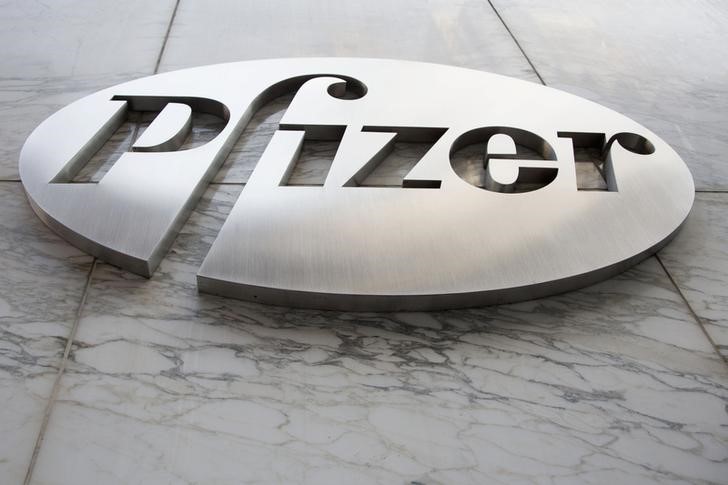By Susan Cornwell and Diane Bartz
WASHINGTON (Reuters) - Pfizer Chief Executive Ian Read, who has been lobbying Congress regularly for a corporate tax cut, is trying for the second time in as many years to do a deal with a foreign company that could produce the savings he has been unable to extract from Washington.
Pfizer Inc (N:PFE), which is pursuing a deal for Dublin-based Allergan Plc (N:AGN), was one of the top spenders among pharmaceutical companies lobbying the U.S. government in 2014, according to data from the Center for Responsive Politics.
But while Read has convinced some U.S. lawmakers that a U.S. corporate tax rate of 35 percent puts them at disadvantage to global rivals, having no tax reform on the near horizon has propelled the largest U.S. drugmaker into pursuing a tax-cutting merger overseas, people close to Pfizer said.
"Ian Reed has been very active... in telling Congress the risk of having an anti-competitive tax structure," said a source close to the company, who asked not to be named because she was not authorized to discuss the matter publicly. "Ian has been to Washington, had meetings in New York, he's been to the White House, he's been on the Hill, in the last two years it's got be seven or eight times, just on encouraging tax reform."
Pfizer and Allergan said last week that they were in friendly merger talks to create what would be the world's biggest drug company. While no other details were available, Pfizer is discussing a tax inversion, in which U.S. companies relocate overseas to take advantage of lower tax rates abroad, sources have told Reuters.
The talks come a year after Pfizer failed to buy British drugmaker AstraZeneca Plc (L:AZN) over a disagreement on price. That deal also would have allowed Pfizer to reincorporate in Britain and pay a significantly lower corporate tax.
While the latest merger move has sparked fresh inquiry into the controversial tax maneuver, lobbyists and analysts said it's unlikely that either the Obama administration or Congress would throw up serious obstacles.
With the 2016 presidential election just one year away, bipartisan agreement in Congress on a subject as controversial and complicated as corporate tax reform seems unlikely.
"Between now and then I think it is next to impossible," said Grover Norquist, president of Americans for Tax Reform, a taxpayer advocacy group.
But legislation to close the loopholes on inversion, something many Democrats would like, is seen as an even longer shot in the currently Republican-dominated Congress.
People close to Pfizer stressed that Pfizer's interest in Allergan is driven by the latter's portfolio of products that include wrinkle treatment Botox and Restasis dry eye treatment. But inversion is also an important element in Pfizer's considerations, the sources said.
"It would make no sense for a company to want to penalize the shareholders of an acquired company, of a merged company, by being taxed at the higher rate, in a country where the tax rates are higher," the source close to the company said.
POLITICAL CALENDAR
Pfizer spent $9.49 million on lobbying in 2014 and $10.1 million on lobbying in 2013, according to the Center for Responsive Politics . This makes it a top pharmaceutical spender along with Amgen (O:AMGN), which spent $8.56 million in 2014; Eli Lilly (N:LLY), which spent $8.2 million that year, and Novartis AG (VX:NOVN), which spent $6.54 million.
Pfizer lobbies on a variety of topics and does not break down how much they lobby on tax reform specifically. Among those representing Pfizer's tax interests is Ken Kies, one of Washington's top tax lobbyists.
Read has made a few converts from traipsing up to the Hill to complain.
"I've talked to him a number of times," Republican Senator Rob Portman, of Ohio, said of Read. "I sympathize with his policy analysis. I agree with him that it's stupid for us to put our companies in this situation... and for us to -- you know, blame the companies rather than blaming ourselves -- is a copout," Portman told Reuters.
With its latest maneuver, Pfizer appears to have stopped waiting for Congress to act.

"I don't think they are giving up, I think they are just dealing with the world as it is ...Investment in cures and patients don't follow a political calendar, they follow a scientific calendar," the source close to the company said.